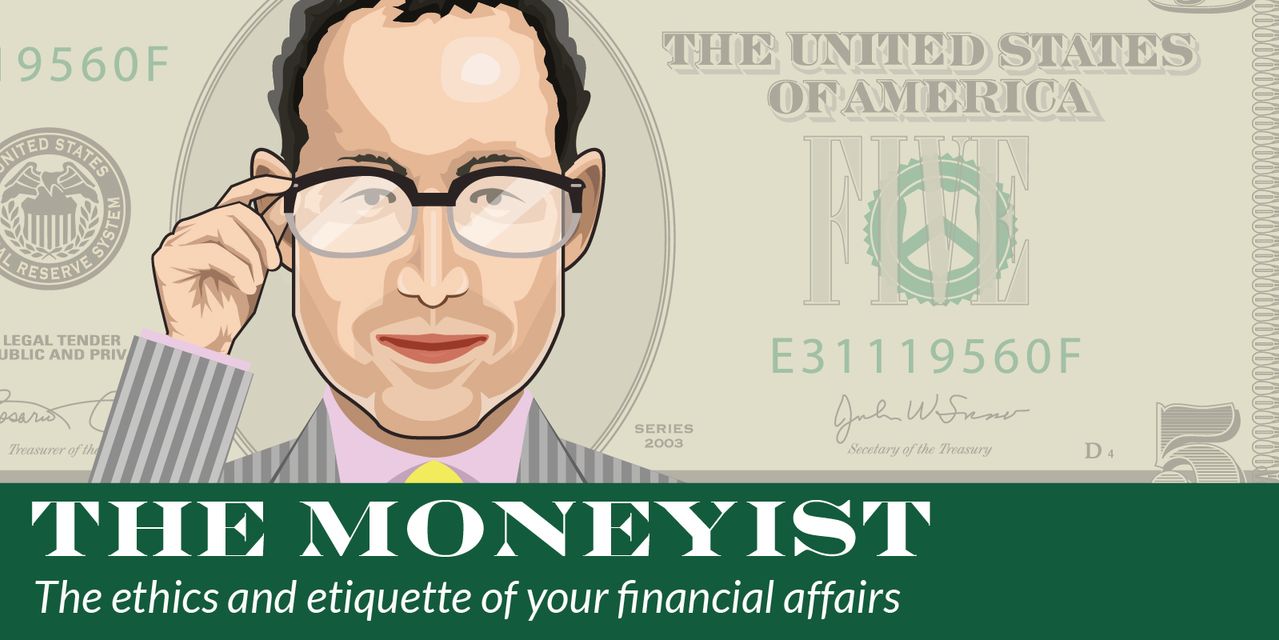The Moneyist: ‘And then 2022 happened’: I borrowed $500,000 from friends and family to invest in the stock market, foolishly promising a 10% return. Can I avoid legal action?

Dear Quentin,
I am a budding options/futures trader with my own sole proprietor investment business. Heading into 2022, I took on a large cash infusion of $500,000 from friends and family under the guise of a promise I made to issue a 10% return on their money. This promise was made via a signed promissory note, and the return was less than the annual return I had been experiencing years before.
And then 2022 happened. It was an extremely bad year for the markets, and the worst I’d seen since I had been actively trading. Needless to say, I was not able to make due on my promise and I am not in a place where I have funds left to pay back those friends and family. This has severely fractured some of the relationships I value the most, and put my friends and family in a very stressful situation.
I still plan to make financial restitution to everyone, but since then I have to rebuild my finances almost from scratch. The question I have is twofold: What’s the best way to mend and repair the relationships with friends and family, and to what extent could I be faced with punitive legal action? Your advice is greatly appreciated.
Investor & Friend
Dear Investor,
This is a time to tell the truth, admit your mistakes, eat a lot of humble pie, and tell your friends that you will put together a payment plan to repay them in full.
Promissory notes are typically used in real estate, automobile, college and/or personal loans. Investing in the markets is a long-term bet. Timing the market is a fool’s game. The decade-long bull market instilled a false sense of confidence in millions of small investors and meme-stock aficionados, as you have learned at a cost. You’re not the only one who is licking their wounds after a brutal year, but you have obviously complicated events for yourself.
They willingly gave up their money for you to invest. But there are a series of laws govern the securities industry, and you also took the extra step of signing a promissory note, which leaves you open to legal action. So they were effectively lending you money with a 10% rate of return. As a result, they can file a lawsuit against you, report you to a debt-collection agency, or even call in any assets you may have put up as collateral against these loans.
A promissory note, as its name suggests, is a legally binding promise to repay a debt. This is a good time to take a closer look at the notes you signed to ensure they are enforceable. Most promissory notes have terms that ensure they are valid. They must be deemed fair to both parties, and be signed by both parties, and state the exact amount of money borrowed, in addition to the interest rate, the frequency of payments and the term of the loan.
“‘The decade-long bull market instilled a false sense of confidence in millions of small investors and meme stock aficionados.’”
Rules for promissory notes vary by state. Enlist the help of a securities-law attorney before taking any actions, and before making any other promises that you may not be able to follow through upon. You are vulnerable, but so are they. In other words, they will want their money back, and putting a plan in place to repay the money — even in small increments with the hope that they would increase — could help deter them from taking legal action against you, at least for now.
The Securities and Exchange Commission warns people against buying unregistered securities, which potentially could be the case here. The SEC says people should be on the lookout for common signs of potential fraud before investing in an unregistered offering. Those red flags include claims of high returns with little or no risk, unregistered investment professionals, aggressive sales tactics, problems with sales documents, unsolicited investment offers, among others.
Stock-market returns are highly unpredictable, and you should expect wild fluctuations from time to time, according to a recent report by management consulting company McKinsey. Since about 1800, stocks have consistently returned an average of 6.5% to 7% per year after inflation, according to an analysis by McKinsey economists. What’s more, their analysis concluded that market returns over the past 25 years are within that historical range.
However, there are annual exceptions. The S&P 500 SPX, +0.22% fell in 2000, 2001, and 2002, 2008 and 2022. McKinsey’s lesson for investors: “Don’t get sidetracked by short-term stock movements, which tend to stir up lots of headlines. Reasonable and largely stable returns (as measured by low stock-price volatility over 10-year periods) will encourage more individuals to invest in the stock market. That, in turn, will provide capital for more growth and broader creation of wealth.”
Let this be a warning. Don’t make promises of a guaranteed return, regardless of whether you are borrowing money from strangers or friends and family.
You can email The Moneyist with any financial and ethical questions related to coronavirus at qfottrell@marketwatch.com, and follow Quentin Fottrell on Twitter.
Check out the Moneyist private Facebook group, where we look for answers to life’s thorniest money issues. Readers write in to me with all sorts of dilemmas. Post your questions, tell me what you want to know more about, or weigh in on the latest Moneyist columns.
The Moneyist regrets he cannot reply to questions individually.
More from Quentin Fottrell:

Comments are closed.